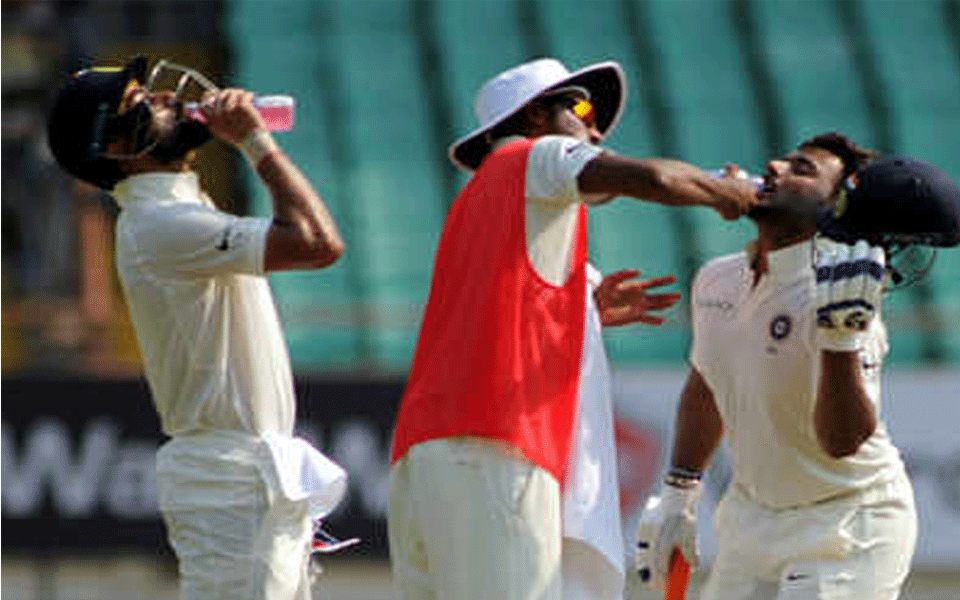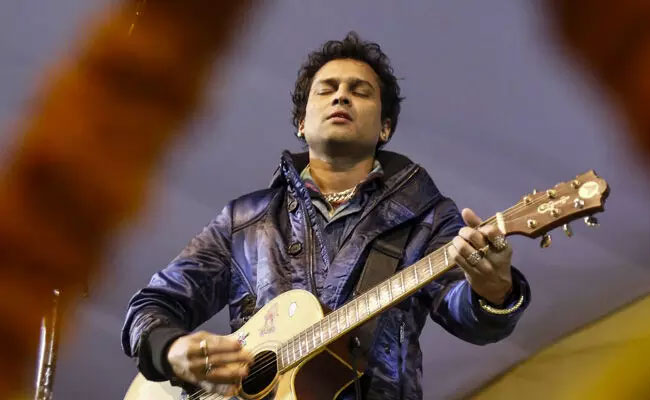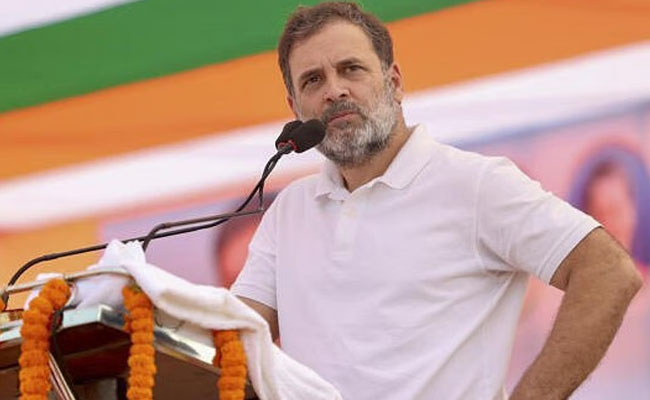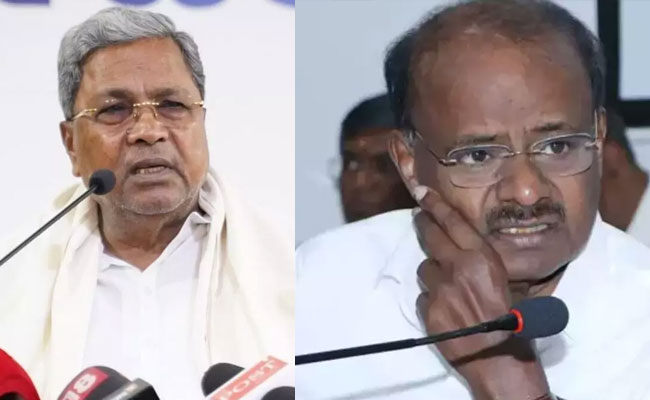Rajkot, Oct 6 : India captain Virat Kohli Saturday raised concerns over the new ICC regulations which permit water breaks only at the fall of a wicket or in-between overs, and hoped match officials take into account external factors such as heat.
As per the new ICC regulations from September 30, water breaks are permitted only at the fall of a wicket or in-between overs, with unscheduled breaks at the umpires' discretion.
With temperatures touching nearly 40 degrees Celsius on each of the three days of the first Test between India and West Indies here, players from both sides were constantly under the supervision of umpires while asking for drinks breaks.
"That was a bit to do with the umpires pushing us as well, with these new rules coming in of not drinking too much water," Kohli said after the game, which India won by a record innings and 272 runs.
"These things should be considered according to the conditions we play in."
The extra scrutiny led to an improvement in over-rates.
"The guys really struggled in this game because of those few changes. It was quite difficult for the guys not to drink water for close to 40-45 minutes while batting and on the field as well. I'm sure they'll look into this," Kohli said.
While batting, Cheteshwar Pujara worked around the water-break restrictions by sipping from small bottles in his pocket.
The heat played a part in going in with a fifth bowler at the expense of an extra batsman.
"We wanted to have the extra guy because of the heat factor," Kohli said.
"Four bowlers would have struggled in these conditions and we just wanted to give them bit more breaks in between and still have quality bowling coming at the opposition.
Let the Truth be known. If you read VB and like VB, please be a VB Supporter and Help us deliver the Truth to one and all.
Guwahati (PTI): Investigation into the death of Assam's cultural icon Zubeen Garg is almost complete, and the charge sheet will be filed on December 12, a senior police officer said on Saturday.
Garg died while swimming in the sea in Singapore on September 19.
Special Director General of Police of Criminal Investigation Department (CID), Munna Prasad Gupta, while addressing a press conference here, said, "The investigation is almost complete. The details will be given in the charge sheet."
Gupta, who is leading the Special Investigation Team (SIT) probing Garg's death, said seven arrests have been made so far and over 300 witnesses examined.
He refused to share further details, adding that more will be known once the charge sheet is submitted.





